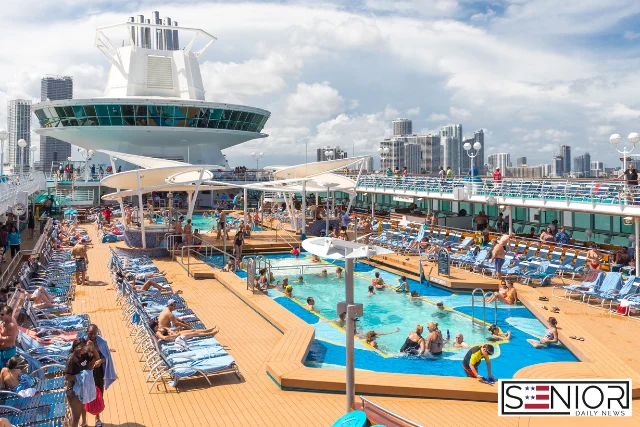How Seniors Can Score the Best Last-Minute Cruise Deals in 2025

Spontaneous travel is one of the great perks of retirement. When the grandkids’ soccer schedule clears or winter weather starts to bite, you can wake up on Tuesday and be sailing out of Fort Lauderdale by Friday—often for far less than the folks who booked a year ago. That’s the magic of last minute cruise deals for seniors. Cruise lines hate to leave cabins empty, and they know retirees have the flexibility to pack and go. Below is your 2025 playbook for grabbing those bargains without sacrificing comfort, safety, or fun.
Why Last-Minute Pricing Exists—and How It Works
Cruise fares rise and fall like airline tickets. About 60–90 days before sailing, final payments are due; after that point, cancellations leave inventory the line needs to fill. Algorithms slash prices or add extras (free drink packages, onboard credit) to entice late shoppers. Seniors benefit because they can travel midweek, avoid school-holiday surges, and drive to ports on short notice—criteria the algorithms reward.
Many cruise brands stack senior discounts on top of last-minute rates. MSC’s Senior Club, for instance, advertises up to 10 percent off for guests 65 and older msccruisesusa.com, and most mainstream lines classify anyone 55 plus as a “senior” eligible for special pricing cruises.booking.com. Industry trackers report total savings of up to 15 percent when dedicated senior programs combine with clearance fares seniorsite.org.
Where to Hunt for Bargains
1. Cruise-Line “Deals” Pages
Bookmark each brand’s promo section and filter by “Senior” or “Resident” rates. Some lines, like Celebrity, hide senior fares behind the “household” dropdown—check it even if you’re cruising solo.
2. Aggregator Sites
Booking.com Cruises flags senior-qualified sailings and clearly notes the “Passengers 55 and older qualify for special rates” rule cruises.booking.com. CruiseDirect and VacationsToGo publish 90-day tickers that refresh hourly.
3. Flash-Sale Emails & Apps
Sign up for “sailing soon” newsletters from your favorite line, enable push alerts in apps such as CruiseWatch, and join Facebook groups focused on last minute cruise deals for seniors. Lightning sales often last less than 24 hours.
4. Membership Marketplaces
An AARP Travel Center account ($20 per year) unlocks cruise-line specific discount codes and onboard-credit offers for retirees kiplinger.com. Costco Travel bundles gift-card rebates that can cover gratuities.
5. Travel Agents Who Specialize in Seniors
Old-school? Maybe. But agents still get blocked space and “group rate leftovers” that don’t appear online. Ask if their consortium waives single-supplement fees—a huge win for solo retirees.
Stacking the Savings: Ten Tactical Tips
- Be Port-Flexible: Drive-to departures (Baltimore, Galveston, Tampa) often run cheaper last-minute than headline hubs like Miami.
- Watch Guarantee Cabins: Accepting “balcony guaranteed” means the line assigns your room later; you pay less and sometimes score an upgrade.
- Book Inside 30 Days for Price Drops: At 30, 14, and 7 days out, cruise revenue managers make final cuts—track with fare-watch tools.
- Hold Airfare With Points: Use airline miles for the flight component; you can cancel mileage tickets without cash penalties if cruise plans shift.
- Bundle Perks: A $300 onboard-credit promo might beat a $100 fare cut once you add specialty-dining costs. Calculate the full package.
- Check Senior-Eligible State Rates: Some flash sales stack “resident” discounts with senior pricing if you live in Florida, Texas, or California.
- Leverage Past-Guest Numbers: Loyalty programs often unlock combinable onboard amenities even for last-minute bookings.
- Monitor Upgrade Bids: Post-booking, lines email “MoveUp” offers—bid low early and raise if cabins remain unsold.
- Travel Off-Peak Within Peaks: Caribbean sailings leaving Saturday are pricey; the same ship mid-week can be hundreds cheaper.
- Use Credit-Card Price Protection: A few premium cards refund the difference if your fare drops after you pay in full—screenshots required.
Hidden Costs & How to Control Them
- Port Taxes & Fees: Often $100–$300 pp and rarely discounted.
- Gratuities: Budget $16–$20 pp per night unless prepaid.
- Insurance: Seniors should consider “cancel for any reason” plans; policy cost averages 7–10 % of trip price.
- Internet & Beverage Packages: Last-minute offers sometimes include these, but if not, buy online before embarkation for 10–30 % savings.
Health, Safety, and Accessibility on Short Notice
Cruises cater increasingly to older travelers: medical centers staffed by doctors, wheelchair-accessible cabins, and low-impact shore options abound. Still, verify:
- Medication Quantities: Carry at least an extra week’s supply in case of itinerary changes.
- Travel Documents: Passports must be valid six months beyond sailing; closed-loop U.S. cruises accept a birth certificate and ID but air delays may reroute you internationally—play it safe.
- Mobility Equipment: Many lines partner with Scooter-Around for rental delivery directly to the cabin. Reserve as soon as you book; supply is limited for last-minute sailings.
Quick-Start Checklist (48 Hours From Booked to Boarded)
- Reserve cruise and pay in full.
- Purchase travel insurance (look for “waives pre-existing condition” clause).
- Book flights or plan driving route and parking.
- Complete online check-in; print or download boarding passes.
- Schedule dog-sitter and mail hold.
- Pack: two formal outfits, magnets (ship walls are metal), refillable water bottle, basic meds, power strip (non-surge).
- Notify credit-card company of travel dates.
- Download cruise-line app for daily schedules and chat.
- Double-check passport and vaccination requirements.
- Head to port—early arrival reduces boarding-day stress.
Case Story: Pete & Linda’s $499 Caribbean Sprint
Pete (72) and Linda (68) from Ohio wanted warmth after Christmas. Ten days before New Year’s, they spotted a five-night Western Caribbean sailing on Carnival for $499 each, balcony guarantee. Because Pete is 55+, the senior rate knocked off another $50. They applied a past-guest offer for $100 onboard credit and used AARP gift-card savings for prepaid gratuities. Total trip cost: $1,246, including taxes, plus an unexpected upgrade to an aft-view extended-balcony cabin received two days before departure.
Frequently Asked Questions
1. How much can I really save with last-minute cruise deals for seniors?
Typical savings run 25–50 percent off brochure rates. Add a senior discount (5–15 percent) and onboard credit, and your overall value can approach half-price or better.
2. Is it risky to sail during hurricane season to get cheaper fares?
Storms are possible, but modern ships reroute smoothly. Purchase cancel-for-any-reason insurance and stay flexible on ports—you might swap Cozumel for Key West.
3. Can I combine AARP benefits with cruise-line senior discounts?
Usually yes. AARP codes often apply to the base fare; line-specific senior rates then lower the price further or add perks like free specialty dining.
4. Are single seniors penalized with a supplement?
Most cabins are priced for double occupancy, but flash sales sometimes waive or cut the single supplement. Look for “solo friendly” tags or ask a travel agent to monitor.
5. What if the price drops after I book?
Until final payment you can re-price without penalty. Afterward, some lines issue onboard credit for the difference—call as soon as you spot a lower fare.
6. Do I need a passport for a last-minute cruise from a U.S. port?
Technically no for closed-loop Caribbean itineraries, but a passport is strongly advised. It’s required if a medical emergency forces an international flight home.
Image Source: Canva






